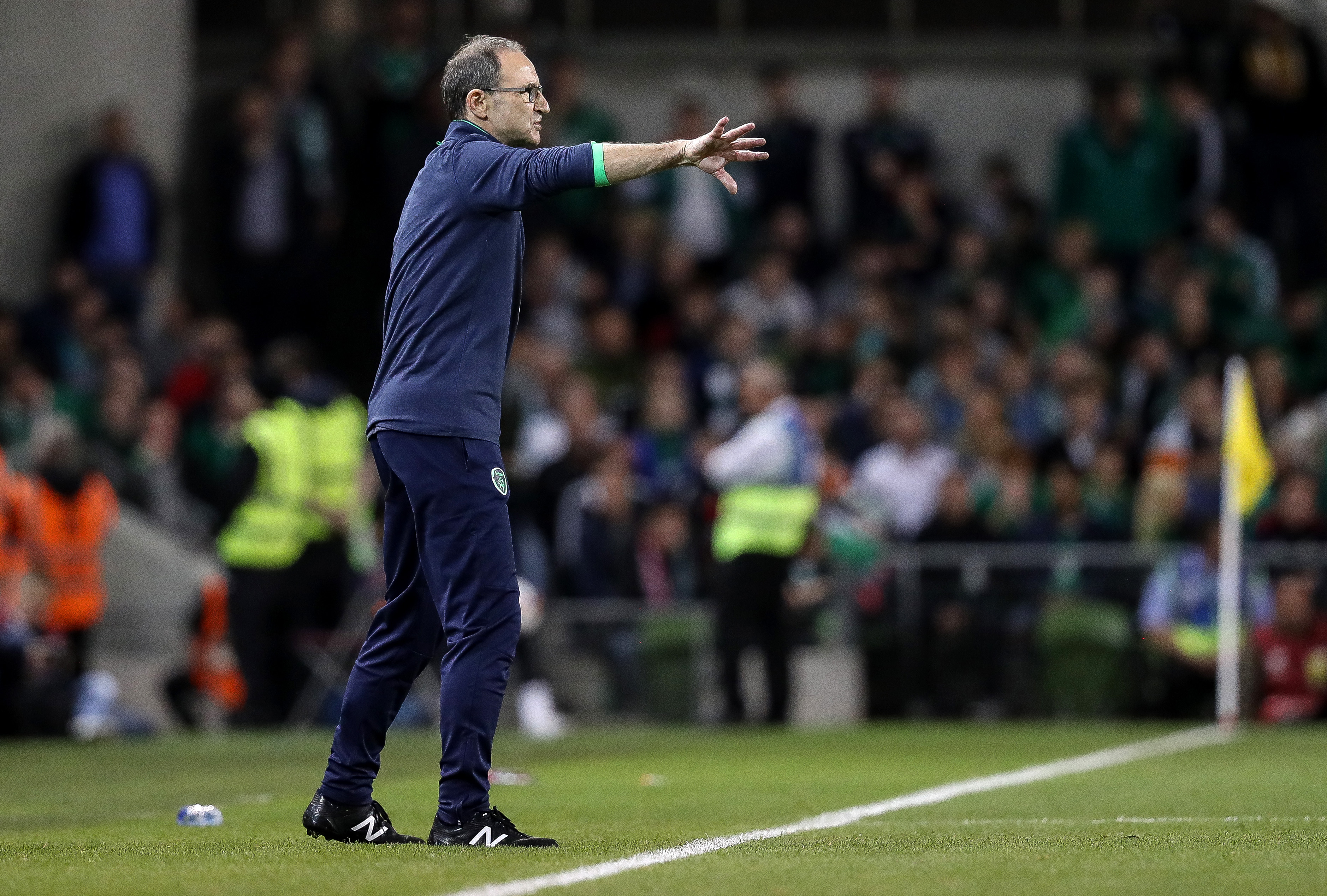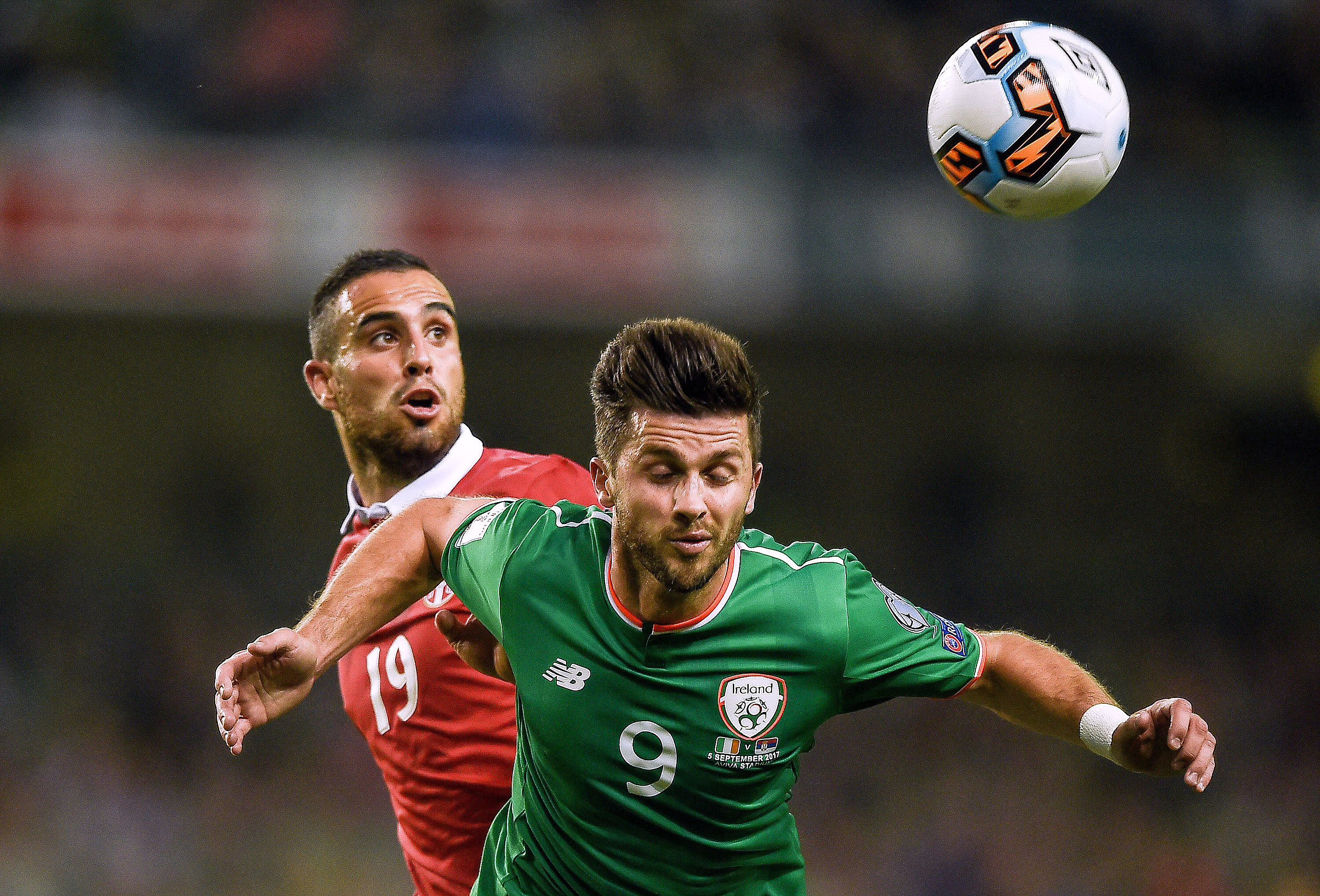

Share
5th September 2017
10:05pm BST

But O’Neill’s skills have always been deployed most effectively within the dressing room and he tends to view anything that goes on beyond that - interviews and press conferences in particular - as an inconvenience before the main event.
His powers have always worked on this team on the big occasion, so it was no surprise that he roused Ireland into a better performance here at the Aviva on Tuesday night, but even that had its limits.

When Ireland went behind after Aleksandar Kolarov’s goal, they seemed to lose hope and their great spirit disappeared. The players slumped on the pitch, taking time to pick themselves up as if they feared the worst, as if they knew the game was over. Jurgen Klopp had once commented as Liverpool supporters left the ground when the opposition scored in the 82nd minute that you can “score eight goals in that time”. Klopp wanted more belief from his supporters, Ireland's players seemed to be full of doubts. Kolarov had scored in the 56th minute. Ireland’s players knew they couldn’t score two goals in that time, let alone eight. They knew that one was probably beyond them.
For twelve minutes, Ireland looked like they would be overcome by despair then Nikola Maksimovic brought down substitute Daryl Murphy and was sent off for a professional foul. Ireland had hope, but not too much of it. Murphy had replaced Wes Hoolahan and Ireland would spend the final 20 minutes playing demented Wes-free football as they searched for an equaliser.
The crowd had spent the night cheering moments which a more sophisticated crowd might consider beneath them but which are the heart and soul of games at Lansdowne Road. They kept it going in the final seconds, roaring when it was announced that there were five minutes of injury time, even if the evidence at that stage was that nothing would come from those minutes except sound and fury which would signify nothing
Whatever hope Ireland had disappeared with Kolarov’s goal, while the withdrawal of a tiring Hoolahan robbed them of their creative intelligence. Ireland were never going to score twice to get the win they needed and when Wales got the goal in Moldova, the mistakes of 2017 were being rammed home.
They might have had a penalty when Murphy was held down in the box, but Murphy might have won the header anyway. They shot on sight when the evidence told them they should be doing something else. They crossed into the box because there were a number of forwards on the pitch, even if the ball wasn’t on. But they didn’t really know what else to do.
For 45 minutes, that didn’t seem to matter. When Hoolahan was on the pitch, he knew what to do and players like Robbie Brady met his standards.
With Glenn Whelan and Harry Arter left out, Ireland had good intentions. O’Neill’s analysis of the Georgia game had focused as much on how Ireland had allowed the opposition to play in Tbilisi as how his side hadn’t played.
That didn’t happen here. Ireland started with the frenzied enthusiasm that O’Neill has restored to the Ireland side on big occasions.
And this, it was clear, was a big occasion and Ireland started with a purpose that insisted to everyone that this didn’t have to be the death rattle for a side which still retained ambitions to top the group.
If you want frenzied enthusiasm, you look to James McClean and if Ireland tired as the first half went on, McClean didn’t, at one point running along the penalty area and then chasing forty yards back towards the halfway line to make a tackle.

By then, Ireland were being carried along by some sort of evangelical fervour, a competitive competitiveness that peaked when David Meyler dispossessed Filip Kostic, ran to keep the ball going out of play at the corner flag and then knocked the ball through Kostic’s legs as he moved back upfield
If Serbia had expected a sullen, shrunken Ireland, this version of the side seemed to take them by surprise. As the half wore on they found openings, but before that, it seemed as if they wanted this relentlessness to come to an end.
If McClean and Meyler embodied the frenzy, Hoolahan was inspiring some creative anarchy. In the 35th minute, Wes took a quick throw. It was nothing of itself, but a regimented team robotically waits for the full-back to take the throw-ins, so it was a sign that these were 11 players thinking for themselves.
His presence lifted those around him as if good players like playing with good players. Brady played a beautiful ball into his path but Wes couldn’t control it.
There were few Irish chances and Serbia were still dangerous, but the game seemed to have a familiar comforting air, the sense that this was a great Irish football night. But the familiar comforting airs are the most dangerous of all.
Kolarov’s goal changed the atmosphere. And deep down, Ireland knew they couldn't change the result.
Explore more on these topics: